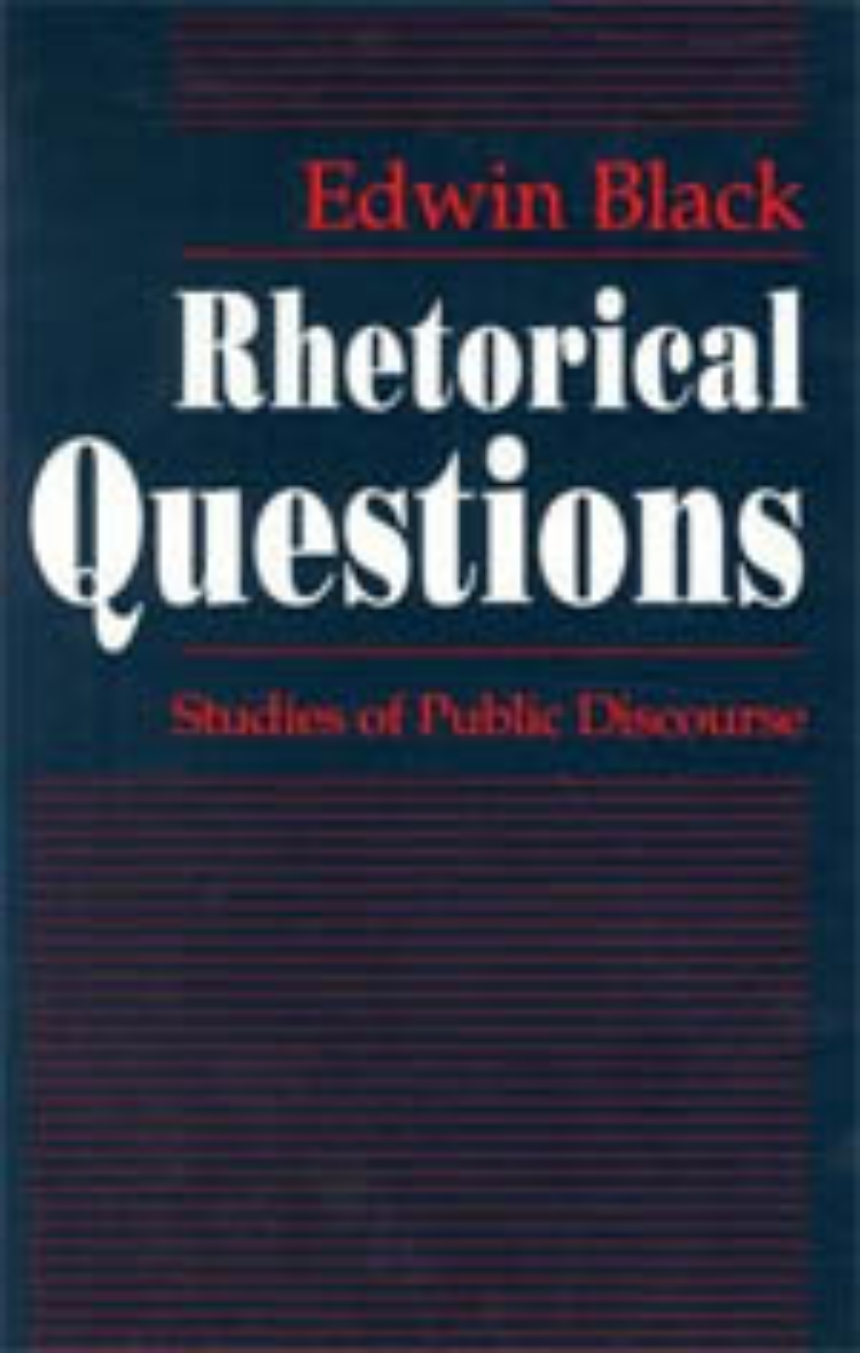Rhetorical Questions
Studies of Public Discourse
From classical antiquity through the Renaissance, rhetoric was the prime vehicle of education in the West and the discipline that prepared students for civic life. With a comprehensiveness drawn from this tradition, Edwin Black here probes the incongruities between form and substance that open public discourse to significant interpretation.
Locating rhetorical studies at the confluence of literature and politics, Black focuses on the ideological component of seemingly literary texts and the use of literary devices to advance political advocacy. The essays collected here range in subject matter from nineteenth-century oratory to New York Times editorials to the rhetoric of Richard Nixon. Unifying the collection are the concerns of secrecy and disclosure, identity, opposition, the scope of argument in public persuasion, and the historical mutability of rhetorical forms.
Locating rhetorical studies at the confluence of literature and politics, Black focuses on the ideological component of seemingly literary texts and the use of literary devices to advance political advocacy. The essays collected here range in subject matter from nineteenth-century oratory to New York Times editorials to the rhetoric of Richard Nixon. Unifying the collection are the concerns of secrecy and disclosure, identity, opposition, the scope of argument in public persuasion, and the historical mutability of rhetorical forms.
Table of Contents
Introduction: Rhetoric as Critique
1 Idioms of Social Identity
2 Secrecy and Disclosure as Rhetorical Forms
3 Rhetorical Secrets: Rhetorical Mysteries
4 The Sentimental Style as Escapism
5 Authoritarian Fiction
6 Ideological Justifications
7 Dramatic Form in Rhetorical Transactions
8 The Mutability of Rhetoric
1 Idioms of Social Identity
2 Secrecy and Disclosure as Rhetorical Forms
3 Rhetorical Secrets: Rhetorical Mysteries
4 The Sentimental Style as Escapism
5 Authoritarian Fiction
6 Ideological Justifications
7 Dramatic Form in Rhetorical Transactions
8 The Mutability of Rhetoric
